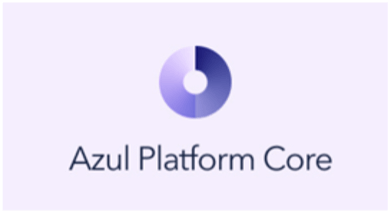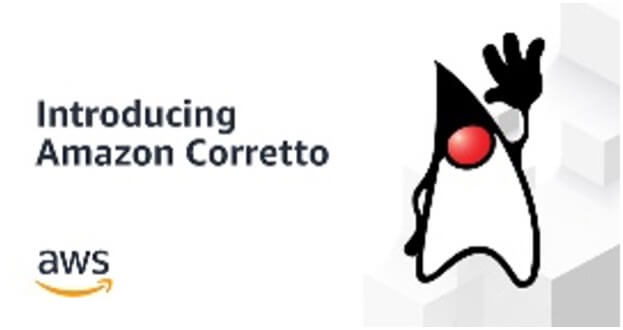The Best Oracle Java Alternatives in 2025 – and How to Transition
Explore the best alternatives to Oracle Java in 2025 and how to switch with confidence. Reduce risk, cut costs, and take control of your Java strategy.
For many organisations, Oracle’s Java licensing model has become a tipping point. With rising costs, rigid licensing terms, and visibility risks, the need to explore alternative Java solutions is more urgent than ever.
The good news? Viable, enterprise-ready alternatives to Oracle Java are available—and many organisations have already transitioned successfully.
This article explores the most widely adopted alternatives, how they compare, and how to plan a smooth, risk-free transition.
🔗 This article is part of our Java Licensing Series:
- Why You Need a Java Strategy Before Oracle Reaches Out
- Oracle Can Track Your Java Downloads—Here’s How
- The Best Oracle Java Alternatives in 2025—and How to Transition
Why look beyond Oracle Java?
The shift to an employee-based licensing model has dramatically changed the economics of using Oracle Java. Even limited usage now requires licensing every employee, regardless of whether they use Java directly.
Coupled with Oracle’s visibility into usage through download tracking, update activity, and third-party software, many organisations are finding themselves exposed—and overpaying.
Alternatives offer a way out: significant cost savings, clear ownership boundaries, and reduced risk of unexpected licensing exposure.
Leading Java Alternatives in 2025
There is no one-size-fits-all solution. The right alternative will depend on your organisation’s size, technical needs, support requirements, and appetite for change.
Here are six of the most popular options:
1. OpenJDK (Open Java Development Kit)
- The open-source reference implementation of Java
- Free to use, modify, and distribute
- Backed by a wide community and often used as a base by other vendors
- May require third-party support for enterprise environments
Source: OpenJDK

2. Azul Zulu and Azul Platform Core
- Commercial OpenJDK builds from Azul Systems
- Offers both free and paid options with enterprise-grade support
- Known for performance tuning and extended security update lifecycles
Sources: Open Source, Fully Supported OpenJDK | Azul Platform Core


3. Eclipse Temurin (formerly AdoptOpenJDK)
- Maintained by the Eclipse Foundation’s Adoptium Working Group
- Widely adopted in enterprise environments
- Free with verified builds and robust quality assurance
Sources:

4. Amazon Corretto
- A free, production-ready distribution of OpenJDK supported by AWS
- Offers long-term support (LTS) and regular security updates
- Optimised for cloud workloads, especially in AWS environments
Sources:

5. IBM Semeru Runtime
- Certified OpenJDK build maintained by IBM
- Available as free community or commercial editions
- Backed by IBM enterprise-grade support
- Comparable support pricing to Oracle in many cases
Sources:

6. Liberica JDK by BellSoft
- Fully TCK-tested OpenJDK distribution
- Available for multiple platforms, including embedded systems
- Offers extended support and commercial features

While the options above represent the most common replacements for Oracle Java in enterprise environments, GraalVM is a specialised runtime that serves a different purpose.
7. GraalVM
- Advanced runtime developed by Oracle
- Offers performance optimisations, multi-language support, and native image compilation
- NOT a direct replacement for standard Java runtimes like OpenJDK or Java SE distributions
- Primarily suited for specialised development needs and performance-focused environments
Sources:

How to Transition Away from Oracle Java
1. Conduct a Compatibility Assessment
- Identify where Java is used across your organisation
- Map dependencies on specific Java versions or Oracle-specific features
- Test critical applications against target alternatives (especially GUI or legacy systems)
2. Define Governance and Policy
- Standardise on one or two alternative distributions
- Update internal documentation, procurement policies, and deployment practices
- Train IT and development teams on support and update processes
3. Roll Out in Phases
- Start with non-critical systems or lower-risk environments
- Establish fallback plans if certain systems require longer migration timelines
- Monitor performance, stability, and compatibility as you scale
4. Engage Licensing and Technical Expertise
- Validate your strategy with independent guidance
- Ensure Oracle Java is removed where appropriate—or isolated where necessary
- Avoid triggering licensing issues through partial or mismanaged migrations
Final Thoughts
Switching from Oracle Java does not need to be disruptive. With the right preparation and support, many organisations are achieving both compliance peace of mind and significant cost savings by transitioning to trusted, open alternatives.
If your business is considering a move away from Oracle Java—or is unsure where to start—ITAA offers independent assessments and strategic licensing advice.
📞 Request a Java strategy consultation
Series Recap
This is the final article in our three-part Java Licensing Series:
✅ Part 1: Why You Need a Java Strategy Before Oracle Reaches Out
✅ Part 2: Oracle Can Track Your Java Downloads—Here’s How
✅ Part 3: The Best Oracle Java Alternatives in 2025—and How to Transition
Need support with Java strategy, audit defence, or vendor negotiations?
🔹 Speak to an ITAA licensing expert today.

Martijn Smit, Chief Revenue Officer CRO & software Licensing Leader
Martijn has an extensive career in software licensing, specializing in Oracle licensing and working with manufacturers and wholesalers. As ITAA’s Chief Revenue Officer, he leads marketing, cross-selling, and strategic partnerships. Known for problem-solving, team leadership, and clear communication, Martijn drives growth and innovation within the company.




